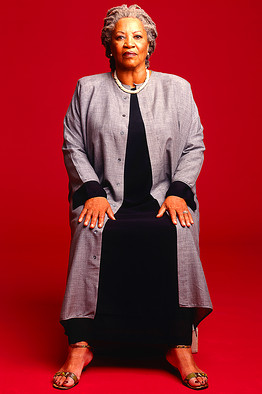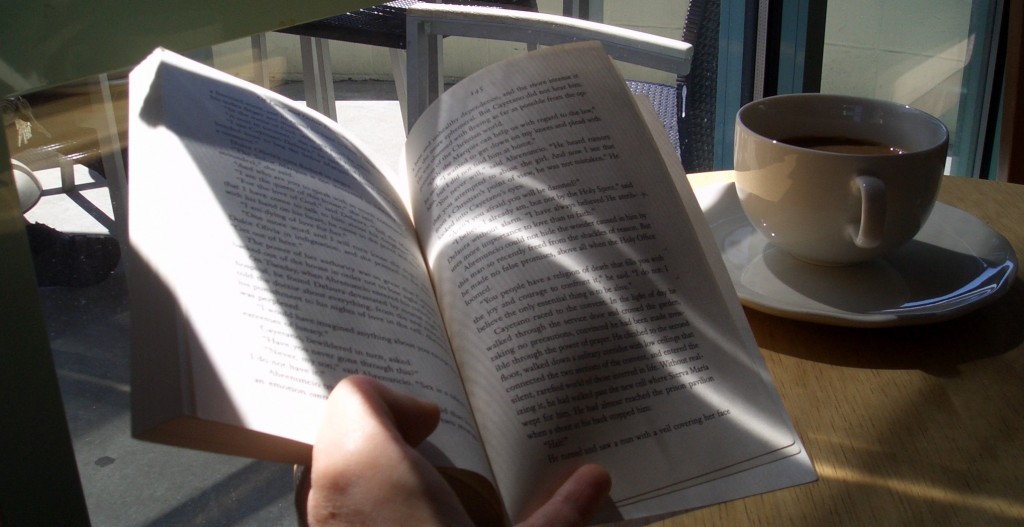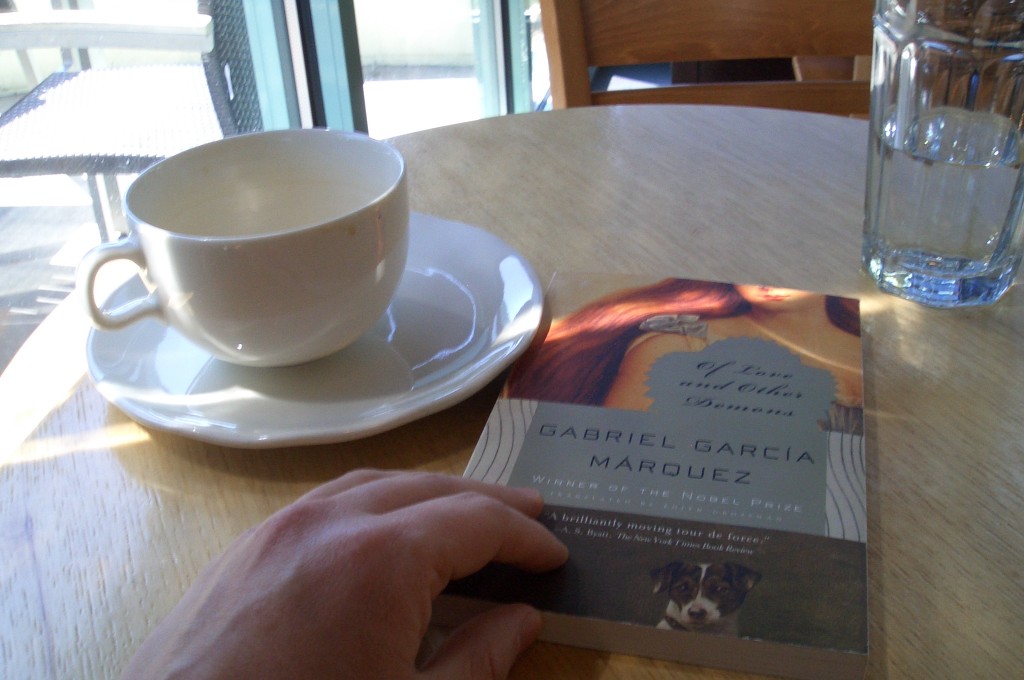 So, no Toni Morrison for me. Not for years. A bit like being a literary vegan, in retrospect. I believed myself to be done with all that moralistic agenda exemplified by sentences like, “You your best thing, Sethe. You are.” Done, I was, with all those freighted character names I had once thought so searching and apt, names like Circe, and Milkman. No more self-consciously high prose as matrix for illiterate or half-literate descendents of slaves. Was their inherent dignity really so fragile as to require it? I’m not saying I didn’t touch a Morrison novel. I touched them all right. I would take them off my shelf, leaf through them, read a paragraph, or a page, then, as if practicing for a polygraph, I’d shake my head, will my pupils to shrink, slide them back between Momaday and Munro – careful not to bend their covers, of course – and construe myself superior to all that… superiority.
So, no Toni Morrison for me. Not for years. A bit like being a literary vegan, in retrospect. I believed myself to be done with all that moralistic agenda exemplified by sentences like, “You your best thing, Sethe. You are.” Done, I was, with all those freighted character names I had once thought so searching and apt, names like Circe, and Milkman. No more self-consciously high prose as matrix for illiterate or half-literate descendents of slaves. Was their inherent dignity really so fragile as to require it? I’m not saying I didn’t touch a Morrison novel. I touched them all right. I would take them off my shelf, leaf through them, read a paragraph, or a page, then, as if practicing for a polygraph, I’d shake my head, will my pupils to shrink, slide them back between Momaday and Munro – careful not to bend their covers, of course – and construe myself superior to all that… superiority.
All this cant was on account of my wanting to be a writer myself. When I sat with my notebook before me, blue ballpoint in hand, Toni Morrison would start pounding in my head like a pick-up truck’s bass. I tried to write sentences like hers, but they floated off the page, sometimes with whole paragraphs in tow, unanchored as they were to any driving concern which could hold them in place. The same problem attended my efforts with Ulysses. In both cases, I was too impressed by “great writing” and its corrollary, “writing greatly”, to plum my own dubious depths and steadily amass a personal vision of sufficient honesty and scope out of which might arise a necessary style.
Then came 2008. Two books by American authors were published that year each bearing a marked debt to Faulkner. Specifically, Absalom, Absalom!. Both, in very different ways, repaid the debt with interest. The first was Peter Matthiessen’s Shadow Country, which offered up its tribute overtly, complete with the conflagration of an emblematic mansion, and a central theme which could be summed up by the famous Faulknerian jewel, “The past isn’t dead. It isn’t even past.” The second was A Mercy.
 I read it. And then, I read it again.
I read it. And then, I read it again.
I will not say that Morrison’s is the better book, but it is the stealthier. Both Absalom, Absalom! and Shadow Country are about the fallout of unchecked ambition, the expanding circle of damage around one man’s power-mad rampage into primordial America. In each, a man, white, decides that greatness inheres in taking, be it land, be it the freedom of others, or the spiritual well-being of his own descendents. In A Mercy the “taker” is Jacob Vaark, an Anglo-Dutch trader who has carved out a small holding in the wilderness of what would one day be New York. Vaark, known to his dependents as “Sir”, has in common with both Thomas Sutpen and Edgar J. Watson an explorer’s nervous system and a kind of Calvinistic shrewdness aimed at making good on the land. But he lacks a taste for subjugation. As a white man and a land owner, the law of the still largely inchoate land (The Revolutionary War is still ninety years off) has imposed advantages upon him, and he certainly lives his way into those advantages. He does acquire a slave, but it is with a sense of realism and necessity rather than inclination or entitlement. Sutpen and Watson are ambiguous monsters, not wholly evil, but dangerous, larger than life, and at home with their own rapacity. Vaark is more or less sympathetic, responding simply and smartly with what he has been given to what arises before him. He surely works for success, but his “superman” gene is recessive. By subtracting out the Neitzchean imperative, what might be called an “ubermensch neurosis”, from her white male land-and-slave owner “taker”, Morrison disallows the traditional romantic resting place for our concept of evil as residing in character, thereby exposing its true and awful “banality.”
Morrison’s perennial theme is the dynamics of slavery, in her universe always more of a pas de deux than most people are comfortable with. In A Mercy, each of her characters is, in one way or another, trying to make an escape. Vaark gathers about him a small society of dependents, mostly women, each on the lam from a dire, enslaving past: Rebekka, Vaark’s wife, from heretic-burning England; Lina, a Native American, from her plague-ridden village, conquered and burned to the ground; the strange girl named Sorrow, ego-shattered and pregnant, from the trauma of a shipwreck; and Florens, the slave girl Vaark purchases from a deliquescent Catholic plantation owner in “Mary’s Land”. Also among them are two white men, Scully and Willard, one young, one middle-aged, working off indenture. They share each other’s bed as well as their workload. This piece of undiscussed common knowledge, far from making them outlaws, gives them an aura of groundedness which mostly eludes the women. They make an artful contrast to the free black man whom Vaark hires as an blacksmith for his mansion. Morrison has said that in this novel, she “wanted to separate race from slavery,” and by making it clear that the free black man, his own boss, earns much more than the two white men, who will likely not live long enough to emerge from under their debt, she again disallows us our comfortably liberal head shaking about that terrible “slavery thing” that some bad people used to do to other people based on their skin color or ethnicity. Slavery cuts across all barriers and takes no prisoners.
On Florens is bestowed the “mercy” of the title. Vaark (“Sir” to her) had originally wanted to purchase Florens’s mother. Ascertaining that Vaark could provide a less cruel life than the one she had endured, she presses her daughter upon him, begging him to take her instead. He agrees. But Florens is not of an age to understand her mother’s motives for giving her away, and, even if she was, the “mercy” would still be forever tied to abandonment, or worse, disposal. She arrives at Vaark’s farm scarred and deeply needy. Wide open and raw, she falls hard in love with the sexy free blacksmith. Their lovemaking is transformative for her. She believes herself needed at last. She will be everything to him, as he is to her. Vaark dies, and Rebekka contracts smallpox. The blacksmith had once proved uncanny in curing Sorrow of the disease, so she sends Florens on the three-day journey through the wilderness to summon him from the village were he lives. When Florens arrives on his doorstep, she finds that he has taken in a small black boy, a foundling, and is raising him. Her hatred of this child, this other, this competitor, is as wild as her love for the blacksmith. The story turns on how she navigates this crisis, or rather fails to, causing a catastrophe which reveals her to the blacksmith as the slave she is, not for being bought by Sir, but made a slave by her own mind.
Unlike Beloved, this is not a book about redemption. In the end, no one comes to Florens’s aid. No one can, least of all herself. And yet there is redemption in Morrison’s art, distilled, pressed, agate-like, into a true late style. And I am quite done, I believe, with being done with her.


